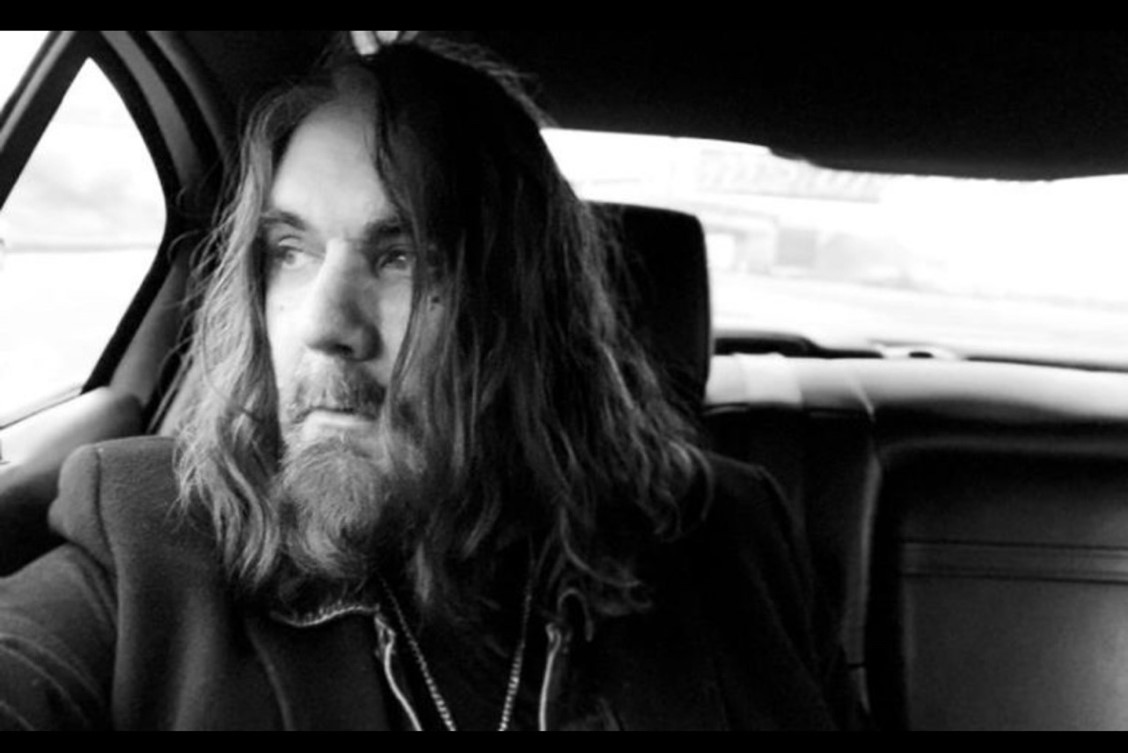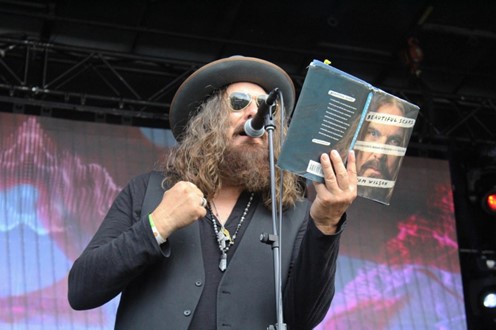Tom Wilson Interview with Mariposa
Posted on
The Mariposa Folk Foundation recently sat down with Juno award-winning musician, author, painter and poet Tom Wilson. Along with Stephen Fearing and Colin Linden, Wilson is a member of Blackie and the Rodeo Kings, the Canadian folk-rock band set to take the stage when Mariposa makes its comeback on July 8-10, 2022.
It was between releasing music for Blackie and the Rodeo Kings, at age 56, that Tom Wilson realized he had been living a lie. Growing up an adopted child, Wilson always questioned his origins. Riding in the back of a limo, a coordinator revealed that she knew his real mother, of Mohawk descent, was living on the Kahnawake reserve in Montreal. To Wilson, it felt like the walls around him came crashing down. His album, “Mohawk” and memoir, Beautiful Scars honour his Indigenous community.
The first time he attended Mariposa as a young boy, Wilson recalls the impact: “Mariposa was a magical world to me as a kid looking in. It represented freedom of thought and choice.” Later, in 2006, during his first performance at Mariposa, before he knew of his true background, he spoke openly about his activism and made a call to action in support of Indigenous land claims.
Talk about your album, Mohawk and your memoir, “Beautiful Scars.” What did these two pieces of art mean to you?
“Well, I mean I’m on a journey of identity right now. The next book that I’m writing for Penguin Random House, a movie that we’re just finishing, and a play that opens up in 2023, my music with Serena Ryder. Right now it’s about defining my identity because [it] was taken from me for 56 years. So, now it’s time for me to honour and shine a light on the Mohawk culture and for Indigenous issues and rights across the board. I ended up getting arrested for the first time in my life as a Land Defender and I’m going to continue to fight through my art and through my actions.”
What’s your perspective on Mariposa’s role in highlighting Indigenous performers? In the 1970s and 1980s, former Artistic Director, Estelle Klein, collaborated with Alanis Obonsawin to create the “Native Stage” that featured Inuit throat singers, Cree storytellers, artists from the Dogrib nation and others. Today there is not a specific space for Indigenous culture at the festival.
“Well as a 62-year-old man in 2021, I say fuck that anyways… Like put all the Indians over there and if you want to go look at them, go look at them… So, putting us off on a stage somewhere – I’m sure somebody thought that was a great idea and it was quite acceptable at the time and you can quote me and just say, “fuck that shit man.”
What more can Mariposa do?
“Mariposa… was a starting place for many and it was a destination at the end of the road for all of us. My mother used to talk about it and she was of the age where she got to travel to Orillia and dance in the streets during Mariposa weekends.
I tuned in when it hit Toronto Islands, I was about 11 or 12, I guess. There were all these photos of Leon Redbone and Buffy Sainte-Marie, Gordon Lightfoot, Joni Mitchell, John Prine, all of these guys were scattered across newspapers in the early 70s and at that time Mariposa woke me up as an 11- or 12-year-old boy. It was my dreamland – you know what I mean? But by the time I finally got there things had changed. My dream was over or it had been changed or swallowed up by time, or money, or human weakness. It had turned into something else. Dreams are never really what you want them to be when you finally arrive. That’s not to be critical of Mariposa, it’s just that times and money and things like that change our ideals.”
What was it like performing at Mariposa? What was your experience?
“I brought the album, Mohawk to the stage and it was hot-as-fuck and I refused not to wear my Indigenous beaded hat and refused to back down to the heat. I was able to present readings from my book and music from that album. For me it was a personal triumph because it was how I wanted to represent myself and it was a proud moment for me to be on the Mariposa stage performing…”

What’s the role of Canadian music festivals in highlighting Indigenous performers?
“To get the people, the newer and unknown Indigenous artists into the forefront because man, they are so good. They speak with voices that come from another world. They’re so wise and they’re young and they’re vibrant and their intensity is so great, I think that Mariposa would really flourish with them involved.”
What can Mariposa improve in continuing to highlight Indigenous voices?
“I don’t have the answers to what people should do. I think as a collective we have to show strength. Mariposa… has to show strength and commitment to telling the truth without trying to make it a cute story… Let’s act like we need to educate people that this is real and… with a few hard lessons allowing people to tell each other stories. I don’t just mean Indigenous. We need to hear the stories coming off the lips of colonials of the country and the Indigenous side of the country. It’s the only way we’re going to end up standing together. I hope that I’m not talking too much… I’m speaking from the heart.”
Is there anything else you would like to share?
“I think that my story is one that I’m just going to keep telling and hopefully Mariposa will have me come and play there again, hopefully it won’t take 13 years for them to have me back because by that time I’m gonna be 75 and I might not feel like coming… Mariposa is still that land of freedom to me, you know? This is a great step in the right direction, just having you write this article. I praise you and I praise Mariposa, I truly love that festival.”
And you can catch Blackie and the Rodeo Kings (Stephen Fearing, Colin Linden, and Tom Wilson) at the Mariposa Folk Festival, July 8-10, 2022.
For more information about Tom Wilson check out his website: https://tomwilsononline.com.

